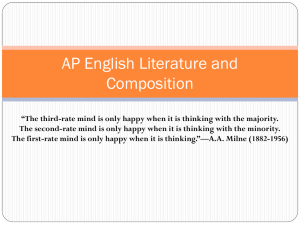Chapter 6
advertisement
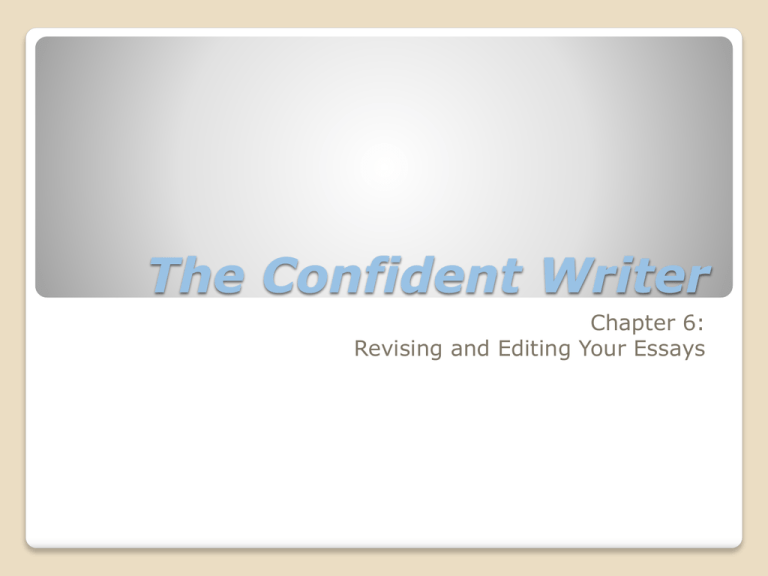
The Confident Writer Chapter 6: Revising and Editing Your Essays Every word in an essay should serve a purpose. Avoid clutter in your essay: Delete extra prepositions Free up > free Head up > head Avoid euphemisms “Put brackets around every component in a piece of writing that [isn’t] doing useful work.” “Clutter” by William Zinsser Think of your first draft as your discovery draft. Every subsequent draft is a revision in which you are improving: Content Organization Style How to Revise Your Essay Last weekend I had fun with my friends. Traffic was terrible this weekend. I saw the worst movie yesterday. I have very definite opinions about big issues. How to Revise Your Essay What is a ? How do we improve general statements? Add content How do we revise for content? Read for content. Underline general words, phrases, statements, etc. Make notes about where to add content. Introduction w/ thesis Statement How to Revise Your Essay Builds a context for thesis, clarifies topic for reader, uses an effective intro strategy Have you followed the direction of development? Are all 3 parts fulfilling the needed functions? Make an outline to determine what is there and what needs revising. Body w/ support & evidence Topic sentences relates to thesis, details are focused (unity), transitions create coherence Conclusion Ends the essay with finality and reinforces the thesis, uses an effective concluding strategy How to Revise Your Essay Diction: Tone: Sound of the Words Word Choice Sentence Variety: Change it up! Style is how you express yourself in writing. 3 components of style: Determine if your tone is topic-appropriate. Underline descriptive words—convey tone?!! Consider list of tone words in Figure 6.2 on pp. 141. Definition Surface errors are mistakes in: ◦ Grammar ◦ Punctuation ◦ Spelling Causes Surface errors result from: ◦ Inconsistent application of the rules of Standard English ◦ Careless mistakes that occur when you pay more attention to content than to mechanics Eliminating Surface Errors Become aware of the kind of mistakes you make ◦ Track your mistakes Which ones are you making? How do you fix them? Proofread ◦ Check for correctly punctuated sentences ◦ Check for spelling errors Use your returned essays to compete the chart in Figure 6.4 on pp. 145. What trends do you see? Eliminating Surface Errors means editing to eliminate the following: ◦ Wordiness Why use 2 words when you can use 1?!! ◦ Passive Voice Change passive voice to active voice The subject of the sentence should perform the action not receive it! ◦ Tired Expressions If you’ve heard it a million times before, it’s a cliché. Look at Expression to Avoid (Figure 6.5 on pp. 149) Trim & Tighten Your Writing Use Proofreading Strategies Follow these steps for your final round of editing: 1. Let your ideas incubate. 2. Pace yourself. 3. Read backwards. 4. Read aloud. 5. Use a writer’s tools. 6. Proofread with a purpose.
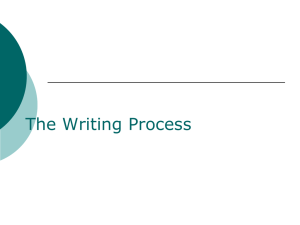
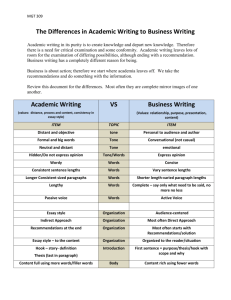



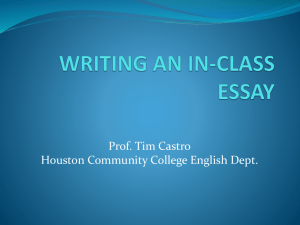


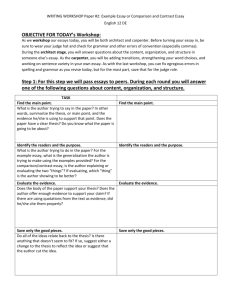

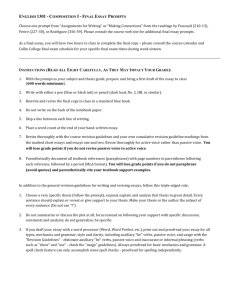
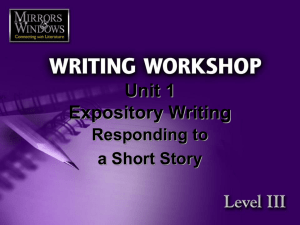
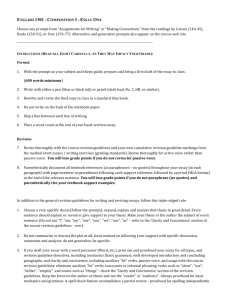
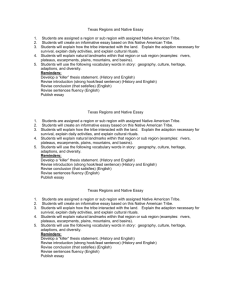
![ELA 20 writing[1]](http://s3.studylib.net/store/data/006847517_1-194ab313283e31b2986ba346de7d4d8e-300x300.png)

